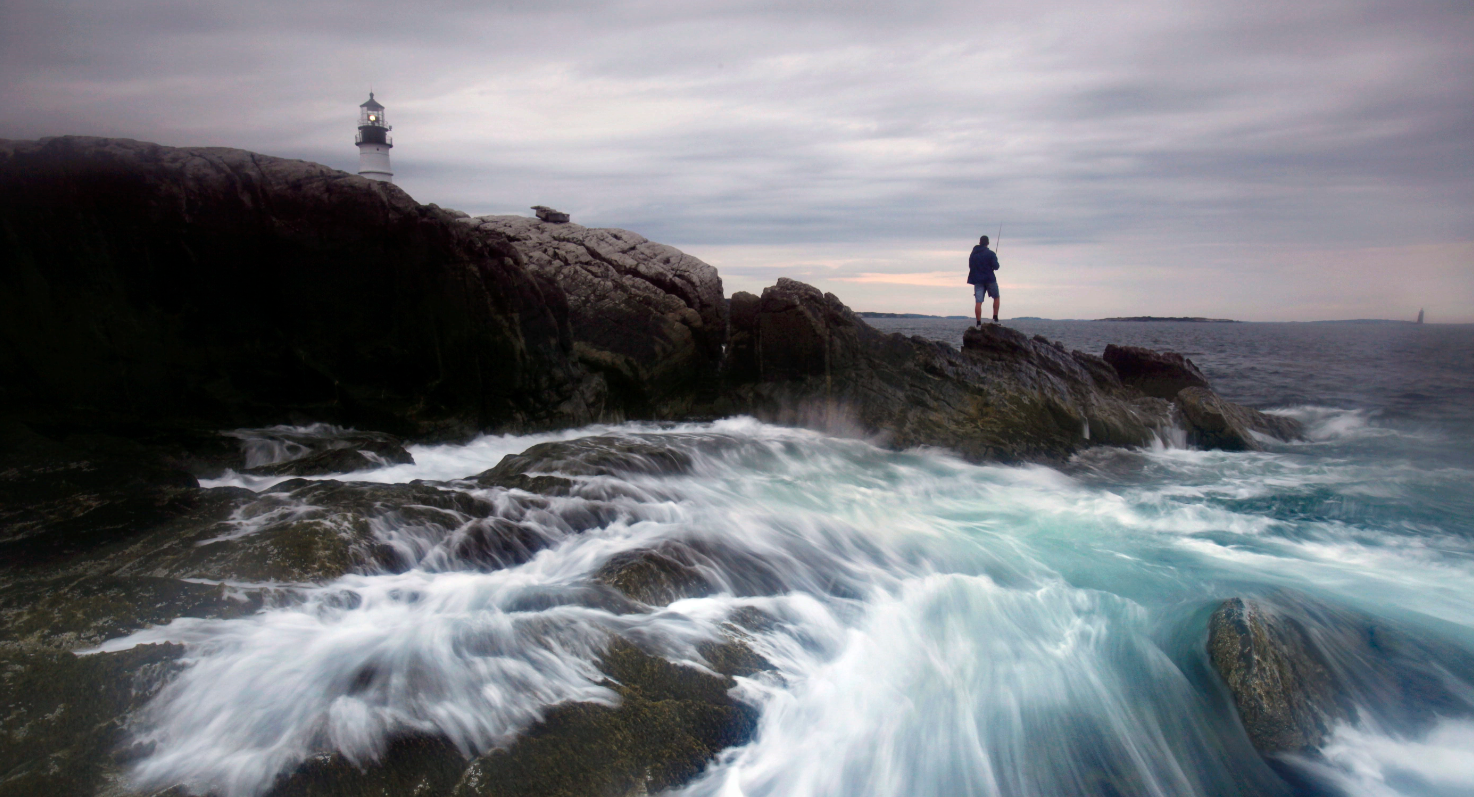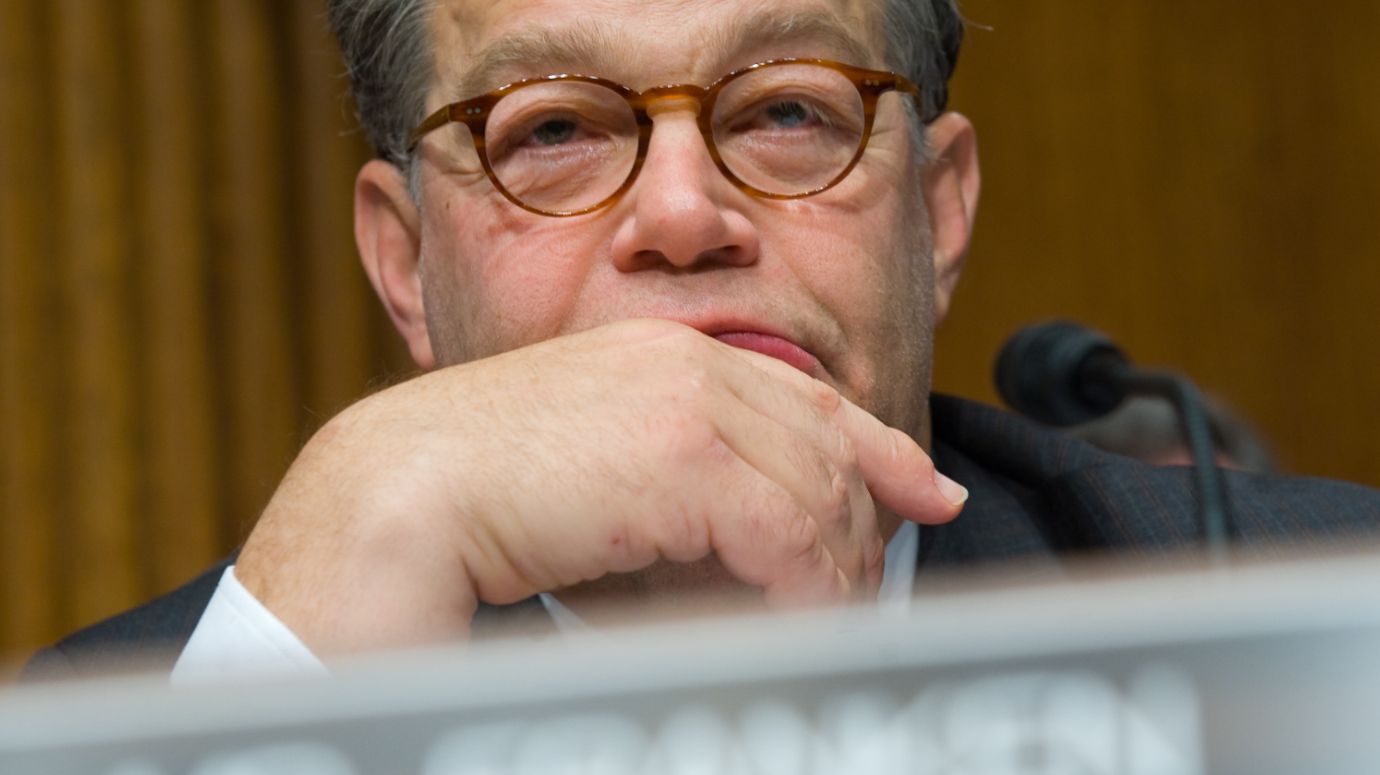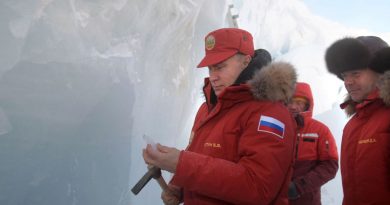Blog: Senate energy committee hearing exposes irony of Arctic opportunities

Last week, the U.S. Senate Energy and Natural Resources Committee held a hearing on Arctic opportunities to assess how the country can improve its standing as an Arctic nation and improve the lives of those living in the region.
Senator Lisa Murkowski (R-Alaska) delivered the opening remarks, while the witness panel included movers and shakers from the frosty world of U.S. Arctic politics. Admiral Papp, appointed last year to the newly created position of Special Representative for the Arctic, was the first to testify. Alaskan state representatives, a sea ice scientist, an indigenous mayor from Alaska, and the director of the Maine Port Authority followed him. The committee broadcast the hearing live on its website, and it is available for replay.
Although Arctic issues remain on Washington’s back burner, they have increased in importance in recent years. This reflects the rapid environmental and economic changes that have occurred in the world’s northern latitudes. As Charlotte Brower, Mayor of the North Slope Borough, eloquently noted, just 70 years ago a person traveling in northern Alaska would encounter a landscape populated by nomadic peoples relying on the land and sea for their resources. Once oil was discovered in Prudhoe Bay in 1968, everything changed. “In a period of roughly 30 years, we experienced over 200 years of economic development and advancement,” she noted. “Melting snow and water morphed to turning on a faucet, whale oil was replaced by electricity and natural gas, and dogs gave way to snowmobiles.” Brower, however, did not seem to lament these upheavals to indigenous ways of life. Schools, hospitals, police, fire stations, and hospitals were all built, bringing modernity and a higher quality of life to indigenous peoples living on the North Slope. The mayor believes that more oil and gas development will deliver further improvements to her community. In Alaska, the importance of the oil industry cannot be understated. Revenues from North Slope oil production fund a whopping 90 percent of the state budget.
A land of opportunity
All of the other witnesses save for the scientist echoed Brower in seeing the Arctic as a land of opportunity. The hearing was called “U.S. Arctic Opportunities” and not “U.S. Arctic Risks.” Oil and gas production, icebreakers, deep water ports, and shipping were all tossed about as means for Alaska to develop its economy. On most of these issues, the federal government is seen as enemy number one, with many Alaskans perceiving it to prioritize climate change above people, jobs, and growth. Mayor Brower criticized,
“Our government has chosen to side with powerful special interest groups and focus on issues like climate change, creating new layers for governance over the Arctic, and creating pan-Arctic marine protection areas.”
The hearing unsurprisingly revealed that Alaskans want the feds to focus on the economy rather than the environment. Alaskan State Senator Lesil McGuire reminded the audience of her state’s role in bolstering U.S. energy security, dropping a reference to the Alaska Wildlife National Refuge (ANWR). Many Alaskans are grumbling about ANWR after the U.S. Fish and Wildlife Service recommended designating an additional 12 million acres as protected wilderness. But Alaska is not what it once was in terms of energy supplies. Mayor Brower referenced the North Slope’s declining production and the Trans-Alaska Pipeline’s reduced flows, which peaked in 1980. North Dakota surpassed Alaska in oil production in 2012 and is doing more to enhance American self-sufficiency in energy production than the 49th state.
The Maine way forward

For a state that’s only recently rediscovered its proximity to the Arctic, Maine had an outsize presence at the hearing. In the past two years, thanks to Icelandic shipping company Eimskip’s decision to relocate its North American port of call from Virginia to Portland, Maine, the northeastern state has made a splash in U.S. Arctic politics. I first wrote about this development in a blog post in 2013 entitled “Maine: The Next Near-Arctic State?”
Trade, transportation links, and globalization are the drivers of Maine’s strategy in the Arctic. This seems to be working slightly better than Alaska’s economic blueprint, which is based on fossil fuel production. In 2013, Maine’s economic growth, though among the slowest in the union, still increased by 0.9%. Alaska’s GDP contracted by 2.5%. Patrick Arnold, the Director of Operations and Business Development of the Maine Port Authority, remarked that their motto is “build trade and mutual economic opportunity, and all else will follow.”
More than the Arctic just coming to Maine via Eimskip, two of the state’s companies are doing business in the region. Portland-based Ocean Renewable Power researches tidal energy solutions and has a project in Cook Inlet, Alaska, whilePika Industries, also based in Portland, works on generating electricity through renewable means and then distributing it via microgrids, which could prove useful for remote communities in the Alaskan Arctic. In contrast, Alaskan representatives barely mentioned the development of renewable energy even though under the previous governor, the state had a plan to generate 50% of its energy from renewable sources by 2025. Alaska appears to be suffering from a case of path dependence. In other words, there’s oil in the ground and the infrastructure is in place, so why not drill more? Maine, in contrast, has charted a new way forward to the north sparked by Eimskip’s serendipitous decision.
One of Maine’s senators, Angus King (I-ME), participated in the Senate hearing. He was able to take the train down to D.C. instead of having to fly from Alaska. The close proximity between the Northeast and D.C. suggest that Maine may have an increasingly prominent role in shaping federal decisions about the Arctic. Fortunately for Alaska, Maine seems to be on its side when it comes to larger issues that need federal support, like the construction of an icebreaker. Senator King noted that one new icebreaker costs the same amount of money as 100 miles of interstate highway.* “We ought to be able to build 100 miles of interstate highway to access this incredible region,” he avowed. Using a reference commonly made in Arctic circles to a much warmer body of water, he continued, “It’s as if we’ve discovered the Mediterranean Sea. It’s essentially an entirely new body of water that’s been locked up for centuries.” Alaskan Natives might beg to differ as they have been in those very waters since time immemorial, but the melting of the Arctic Ocean is indisputable.
Any jockeying between Alaska and Maine ultimately seemed friendly and cooperative. Senator King joked that at first, he wanted to be the U.S. Arctic Senator, but quickly realized that he’d have to settle for being the Assistant Arctic Senator instead. He also reassured the Alaskans in the room that their state is still number one in the U.S. Arctic. A partnership between the country’s senior and junior Arctic states will likely be mutually beneficial, in any case. Maine could learn from Alaska’s history and experience in the Arctic, while the country’s northernmost state could benefit from some Yankee ingenuity.
Burning down the Senate

After the witnesses finishing speaking, the real divisions in the U.S. Arctic became apparent. They were not between Alaska and Maine, nor were they even between the U.S. and Russia, as several participants emphasized the importance of bilateral cooperation. Instead, the schism was between the pro-oil and anti-oil camps. The liberals came out of the woodwork during the question and answer session, with Senator Al Franken (D-Minnesota) suggesting, “We have a bit of an ironic situation here, do we not? The burning of fossil fuels is creating an opportunity to find more fossil fuels to burn.” He then brought up the enormous costs associated with relocating coastal communities in Alaska that are already being washed away by rising sea levels and more dramatic storms. Franken concluded that while Arctic climate change is creating economic opportunities for the state of Alaska, exploiting those very opportunities may exacerbate the situation. “The state is melting to some degree,” he said. “And the coastal communities are obviously feeling it.”
Next came Senator Bernie Sanders (I-NH), who opened by stating the “virtually unanimous” scientific consensus that surrounds climate change, which is “already happening.” He went down the line asking each witness to answer, yes or no, whether we need to transform our energy system away from fossil fuel. Every single witness said yes.
Sanders then, almost seeming exasperated, inquired,
“It would seem to me if one is concerned about preserving your way of life, that one must be a leader in the fight against climate change. And I understand the economic implications of it. But how can we be talking about about producing more oil, which causes climate change and which will be devastating to the communities of Native Alaskans? That I don’t quite understand. Mayor Brower, do you want to help me out on that one?”
The mayor responded,
“I believe that this is a 10,000 year old question. We never question anything that comes to us. We live with what has come before us.”
Sanders then interjected,
“In all due respect, this is not a 10,000 year old question. Climate change has been significantly accelerated in recent years, the evidence is it is caused by human activity…What about the point that some of you, at least, are in favor of more production of fossil fuels, which is ultimately destroying the very communities that your people live in? That does not make a lot of sense to me, in all due respect. What am I missing?”
The mayor responded in a round-about way, admitting they should have found a safer place to develop oil maybe farther away from vulnerable coastal communities. Yet it seems that what Senator Sanders is missing is that oil production has already irrevocably changed indigenous ways of life in Alaska. As Brower mentioned in her testimony, they already have a very modern way of life. There’s no going back to the nomadic ways of life that existed 70 years ago. And so the indigenous peoples live with decisions that have been made before them.
The lack of agency in the Mayor’s response about “never questioning” what comes seems tragic, but perhaps Sanders should have asked whether resisting the onslaught of modernization and industry in the Arctic was ever even a possibility. Without the opportunity to turn back the tide of time, the Mayor can only look to the future and try to ensure the continuation of the only real source of revenue her generation has ever known on the North Slope: oil production. After all, it is faucets, electricity, and snowmobiles which provide for their way of life as they know it now – not sea ice, whale oil, and dogs. Halting the expansion of oil production in Alaska today may slightly stymie global carbon emissions, but it will never bring back Alaska Natives’ former ways of life.
U.S. Arctic Council Chairmanship
Admiral Papp answered Senator Murkowski’s question to provide more clarification on the direction the U.S. will take once it assumes chairmanship of the Arctic Council this spring. He explained that determining the real role of theArctic Economic Council (AEC), which the Canadian chairmanship created, will be a high priority. Senator Murkowski agreed that continuing the work of the Canadians is imperative. She elaborated, “An economy that allows for the people of the North to not only exist but to thrive is critical.” While the Arctic Council chairmanship changes every two years, Murkowski also wants to ensure that the AEC remains a continued priority even once the gavel passes.
Better yet would be to make the Alaskan Senator’s long-term view even longer. Policymakers need to look not just two or four years down the line when it comes to the Arctic’s economy and environment, but rather twenty or forty years. The climate cannot withstand another century of oil production, nor can Alaska’s economy thrive this way. The real opportunity that the U.S. has in the Arctic is to resist the easy choice of more drilling and instead begin building the foundations of an economy that is sustainable for both the people and the environment in the long term.
*Fact-check: The Federal Highway Administration has estimated, in 1996 dollars, a cost of $20.6 million per mile of interstate highway built. This turns into about $32 million per mile in 2014 dollars, making 100 miles of interstate highway cost $3.2 billion. In 2014, the Coast Guard estimated that a new icebreaker would cost approximately $1 billion, meaning that three icebreakers could actually be built for the cost of 100 miles of interstate highway.
Correction: Eimskip’s decision to relocate its North American port of call was from Virginia to Portland, Maine…,” not Portsmouth, Maine as written in an earlier version of this text.
This post first appeared on Cryopolitics, an Arctic News and Analysis blog.
Related stories from around the North:
Asia: China’s silk road plans could challenge Northern Sea Route, Blog by Mia Bennett
Canada: Report warns more Arctic shipping will increase warming, affect health, Radio Canada International
Norway: Norway, Russia committed to Barents cooperation, despite divisions over Ukarine, Barents Observer
Russia: Russian Arctic regions of Murmansk and Yamal widen cooperation, Barents Observer
Sweden: Arctic train line in Nordics would open up polar potential, Barents Observer
United States: Murkowski, King seek to enlist other U.S. senators in an Arctic caucus, Alaska Public Radio Network



